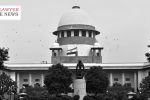Correction in Original Judgement Must be signed by judicial Magistrate – P&H HC

D.D: 23.05.2022
Recently, the Punjab and Haryana High Court encountered a case in which the original order of conviction passed by the Trial Court was modified under the signature of the Reader of the Court during the pendency of an appeal filed by the convict against the said judgement, thereby increasing the convict’s sentence from two months to two years.
The bench comprised of Justice Arvind Singh Sangwan noted that all of the convicts were originally convicted under sections 323/326/120-B of the Indian Penal Code read with section 149 of the Indian Penal Code. However, due to a typographical error, the offence under Section 323 was listed twice, while the offence under Section 326 IPC was absent from the column of conviction. Accordingly, the trial court invoked section 362 CrPC, which permits the correction of clerical or mathematical errors.
It was brought to the Court’s attention, however, that in the corrections made to the original order, which was signed by the Magistrate, the sentence was increased to two years of solitary confinement. This was accomplished under the signatures of the Court Reader, not the Magistrate.
The Petitioner argued that once the Judicial Magistrate has passed the order on sentence, any corrections to the original judgement, if any, must be made under the signatures of the Judicial Magistrate alone, although it is debatable whether any corrections can be made after the passing of a judgement.
The same Judicial Magistrate has the authority to increase a sentence from two months to two years.
Therefore, the instant petition was filed for the reversal of the order by which the trial court’s judgement was amended and modified during the pendency of the appeal.
In this case, the court ruled that an investigation is necessary to determine how the corrections were made under the signatures of the concerned Reader of the Court, thereby enhancing the sentence, even though the original order only required the correction of the typographical error.
Though all of these issues must be decided by the Sessions Judge, Tarn Taran, who is also the administrative head of the Sessions Division, Tarn Taran, and on the surface, it requires an investigation into how the corrections were made under the signatures of the Reader of the Court concerned, thereby increasing the sentence, despite the fact that in the original order, passed by the trial Court, it was only directed that instead of Section 323 IPC, which is mentioned in two places, Section 324 IPC be substituted.
In light of the aforementioned facts and circumstances, the lower appellate court is ordered to permit the amendment of the ground of appeal challenging the aforementioned order and, after conducting an administrative investigation, to rule on the appeal in accordance with the law.
The court ruled that while deciding the appeal, the lower appellate court will also note whether or not such a modification was permissible under Section 362 of the Criminal Procedure Code. Therefore, Prayer in this petition is modified and amended.
Gurmahabir Singh
v/s
State of Punjab






